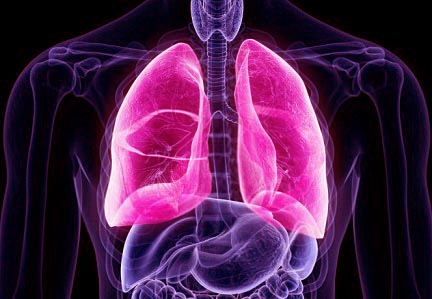Individuals who had COVID-19 without pneumonia at higher risk for pulmonary fibrosis than those with pneumonia
Nikhil Prasad Fact checked by:Thailand Medical News Team Jul 30, 2024 1 year, 5 months, 3 weeks, 3 days, 14 hours, 5 minutes ago
Medical News: In an eye-opening study that sheds new light on the long-term effects of COVID-19, researchers from several prominent institutions have discovered that individuals who contracted COVID-19 but did not develop pneumonia are at a higher risk of developing pulmonary fibrosis compared to those who experienced severe pneumonia. This
Medical News report dives into the key findings and implications of this important research, offering insights into the complexities of COVID-19's aftermath.
 Background and Study Motivation
Background and Study Motivation
COVID-19, caused by the SARS-CoV-2 virus, has had widespread and profound impacts on global health. While the acute phase of the disease primarily affects the respiratory system, resulting in symptoms ranging from mild to severe pneumonia, the long-term consequences are still being unraveled. This study specifically aimed to explore the differences in long-term outcomes between COVID-19 patients with and without pneumonia, focusing on the risk of developing pulmonary fibrosis, a serious and potentially debilitating lung condition.
Study Design and Participants
The research team, which included Turkish experts from Koc University, Cukurova University, Istanbul University, and several other Turkish institutions, conducted a comparative transcriptomic analysis of peripheral blood mononuclear cells (PBMCs) from three groups: healthy controls, COVID-19 patients without pneumonia, and COVID-19 patients with severe pneumonia.
Key Findings: Higher Risk in Non-Pneumonia Patients
One of the most striking findings of the study was that COVID-19 patients who did not develop pneumonia during their infection had a higher risk of pulmonary fibrosis one year after recovery compared to those who suffered from severe pneumonia. The researchers identified several differentially expressed genes (DEGs) and long non-coding RNAs (DElncRNAs) that were associated with this increased risk.
Gene Expression and Inflammation
The study revealed significant transcriptomic changes in PBMCs among the different groups. In particular, there were 4843 DEGs and 1056 DElncRNAs identified in COVID-19 patients without pneumonia compared to healthy controls. These genetic alterations were linked to inflammatory processes and immune responses, suggesting that even in the absence of pneumonia, COVID-19 can trigger long-lasting changes at the cellular level.
Impact of Severity on Long-Term Outcomes
Interestingly, the severity of COVID-19 appeared to influence these long-term transcriptomic changes. For instance, the analysis showed that genes related to osteoclast differentiation and inflammatory responses were upregulated in non-pneumonia patients. On the other hand, genes associated with immune responses and viral infections were downregulated in these patients compared to those with severe pneumonia.
Identification of Hub Genes
A significant aspect of the study was the identification of 14 hub genes from the common DEGs across all compari
sons. These hub genes, including ICAM1, NFKB2, and ATF3, play crucial roles in immune responses and inflammation, highlighting the persistent impact of COVID-19 on the body's immune system. The researchers also found that these genes were regulated by transcription factors such as JUN and NFκB1, which are known to be involved in inflammatory and immune processes.
Implications for Pulmonary Fibrosis Risk
The analysis of gene expression patterns also provided insights into the potential risk of developing idiopathic pulmonary fibrosis (IPF), a condition characterized by progressive scarring of lung tissue. The study compared the gene signatures of COVID-19 patients with those typically seen in IPF. It found that certain gene expressions linked to fibrosis were more pronounced in non-pneumonia patients, indicating a higher susceptibility to fibrotic changes in the lungs.
Conclusion and Future Directions
The findings of this study underscore the complex and long-lasting effects of COVID-19, particularly for those who did not develop pneumonia during their infection. The increased risk of pulmonary fibrosis in these patients highlights the need for ongoing monitoring and potential interventions to manage long-term health outcomes.
The study findings were published in the peer-reviewed journal: Viruses.
https://www.mdpi.com/1999-4915/16/8/1211
For the latest COVID-19 News, news, keep on logging to Thailand
Medical News.
Read Also:
https://www.thailandmedical.news/news/breaking-covid-19-news-44-9-percent-of-post-covid-individuals-develop-lung-fibrosis-irrespective-of-asymptomatic-or-mild-infections-jn-1-is-worse
https://www.thailandmedical.news/news/long-term-lung-healing-even-after-mild-or-moderate-covid-19-many-could-develop-lung-fibrosis
https://www.thailandmedical.news/news/the-uniqueness-of-post-covid-lung-fibrosis-the-increased-expression-of-atp12a-protein
